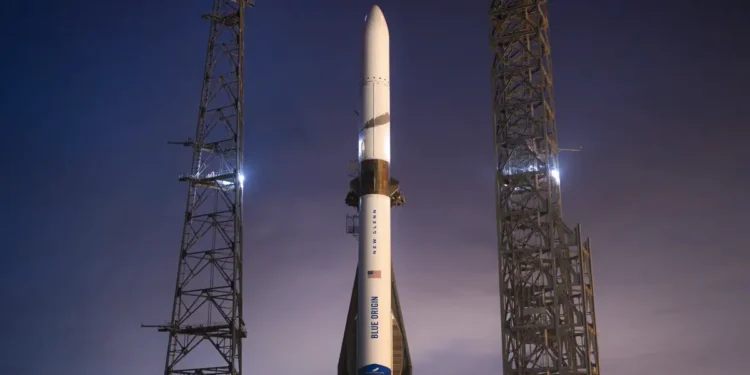Blue Origin’s highly anticipated New Glenn rocket is set to launch from Cape Canaveral Space Force Station in Florida on Monday at 1 a.m. ET. This marks a major milestone for the company as it prepares to test its cutting-edge orbital launch vehicle, nearly a decade in the making. Originally scheduled for earlier this week, the launch faced delays due to rough seas in the Atlantic, where the booster is slated to land.
“Sea state conditions are still unfavorable for booster landing. We’re shifting our NG-1 launch date by one day to no earlier than January 13. Our three-hour window remains the same, opening Monday at 1 a.m. EST,” Blue Origin shared on X.
A New Era for Reusable Rockets
New Glenn stands tall at 98 meters (320 feet), putting it among the largest rockets in active development. Its reusable first stage draws comparisons to SpaceX’s Falcon 9, but this mission won’t deploy any satellites. Instead, it will carry a payload designed to test Blue Origin’s proprietary “Blue Ring” spacecraft platform.
The booster, named Jacklyn after Jeff Bezos’ mother, will attempt a precision landing on a vessel stationed in the Atlantic. Recovering the booster is a crucial step in validating the rocket’s reusability.
Blue Ring Pathfinder: Testing New Technologies
The payload, known as the Blue Ring Pathfinder, is part of a Defense Innovation Unit project. Its mission is to evaluate the spacecraft’s operational capabilities, including ground systems and core flight technologies.
“Our key objective is to reach orbit safely. We know landing the booster on our first try offshore in the Atlantic is ambitious—but we’re going for it,” said Blue Origin.
Jarrett Jones, Senior Vice President for New Glenn, emphasized the importance of this flight. “No amount of ground testing or mission simulations can replace the experience of an actual launch. It’s time to fly. No matter what happens, we’ll learn, refine, and apply that knowledge to our next launch,” he stated.
The Road to First Flight
In preparation for this moment, Blue Origin successfully completed an integrated hotfire test in December 2024. The seven-engine test, which lasted 24 seconds, marked the first time the entire system operated cohesively. This milestone, combined with extensive pre-launch tests, has positioned New Glenn for its historic debut.
The rocket’s design includes advanced systems such as autogenous pressurization, which helps regulate propellant tank pressure during flight. The booster, after separating from the upper stage, will deploy fins and other aerodynamic structures to guide its descent back to the recovery platform.
Blue Origin aims to establish itself as a key player in orbital logistics and reusable space technology with this mission. The company’s bold vision for the future of space exploration starts now.











